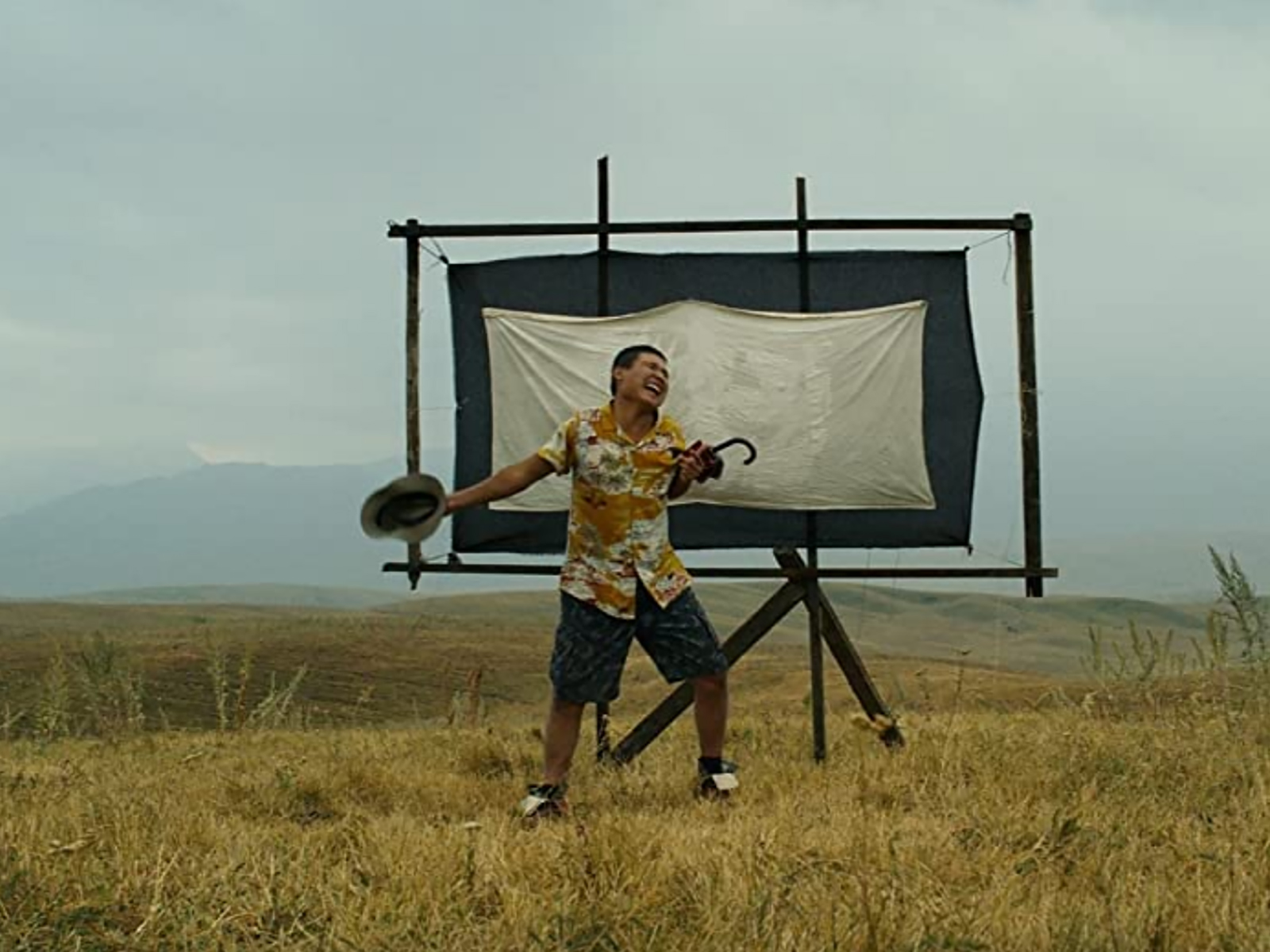
- Golden Globe Awards
Yellow Cat (Kazakhstan)
A man, who has been released from prison, wanders the wide and desolate landscape of the Kazakh steppe looking for a job. He wears a hat, a colorful shirt and Bermuda shorts, which makes him more like a tourist than anything else. He doesn’t look like a dangerous guy either, but rather eccentric. He walks into a grocery store looking for work, and when asked about his skills, the man starts imitating Alain Delon in Jean-Pierre Melville’s The Samurai. His name is Kermek, he grew up in an orphanage watching movies and most of his knowledge of the real world seems to have come from there.
From now on we follow the misadventures of Kermek (Azamat Nigmanov), who eventually is recruited by the local police officer, Bozoy, to commit crimes with his gang of petty criminals. Kermek runs into obsessive gangsters, corrupt cops and various thugs. And out of clumsiness or innocence, he gets more and more entangled in trouble. He gets fired from his job and is sought out for annihilation.
Luckily, he meets a girl as strange, lonely and eccentric as he is, a girl who perhaps will fall in with his idea of putting a movie theater in the middle of nowhere. The girl’s name is Eva (Kamila Nugmanova). She’s a good-hearted prostitute (or so it seems because she’s not much of a talker) and she also likes movies. Kermek, whose world consists of cinematic archetypes, falls at her feet. From then on, the film turns slightly more serious and poetic, putting these two romantic allies on the run.
Shot in the Almaty region, Yellow Cat is the thirteenth feature film by Adilkhan Yerzhanov, one of Kazakhstan´s foremost filmmakers. As in his 2018 film, A Dark-Dark Man, the Kazakh has only one idea: everything is empty and nothing matters. Once the existentialist gene is introduced, there is no possible way out of the dream.
Yerzahnov is undeniably smitten with this region where, together with cinematographer Yerkinbek Ptyralijev, he has returned for the third time. The director knows how to encapsulate his fervor intermingling the endless barrenness and the breathtaking sublimity of the vast field. “The steppe is a separate character in my films. It might be deserted but is never empty. If you look closely, something is always happening in this space and it always expresses something in the frame,” explained to the director when asked about the role of the steppe in his films. Through wide angles, minimalist perspectives and the alternation of background sound and xylophone music (by music composer Alim Zairov) the steppe never looked better. But underneath it, all lies horrific situations related to corruption, poverty or the most savage prostitution.
Yellow Cat premiered in 2020 at the 77th Venice Film Festival where it competed in the Orizzonti selection, going on to compete in the Official Section at the 68th San Sebastian Film the same year.